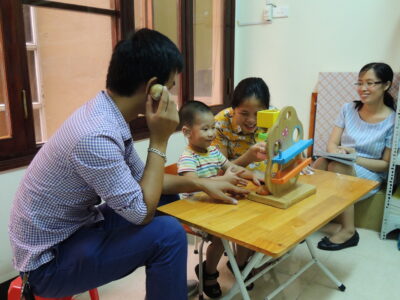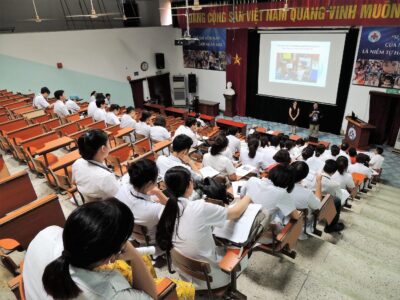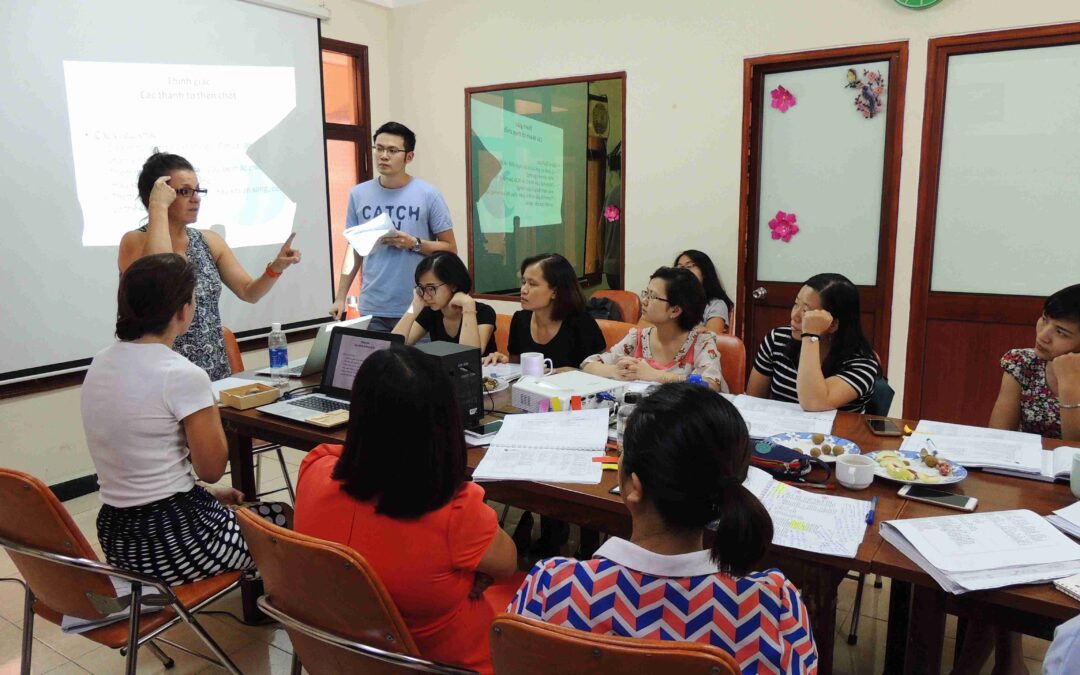The Global Foundation For Children With Hearing Loss spent a rewarding month of August in Vietnam. Last year, the Global Foundation was invited to begin a collaboration with the Vietnam Institute of Educational Sciences (division within the Ministry of Education) in Hanoi. Our task is to train the therapists at VNIES in Auditory-Verbal practice and support their efforts to train future teachers and therapists working with children with hearing loss throughout the country. The group of participants also includes teachers and therapists working with children with hearing loss in Hanoi and in surrounding northern provinces.
We carried out our first training workshop on this topic in January 2018. Between March and July 2018, we continued the participants’ learning experience through video analysis work. In August, the Global Foundation returned to Hanoi with two of its professionals to continue teaching our AVT curriculum with the same group of Vietnamese participants.
It was exciting to see the steady progress in the participants’ understanding of auditory-verbal practice as reflected by the advanced level of their questions during the lectures and in their execution of therapy activities during practicum sessions with families. This group of Vietnamese participants are very committed to the process and eager to learn.
In addition to the two Global Foundation certified Listening and Spoken Language therapists, our team included a pediatric audiologist. The Vietnamese teachers and therapists do not receive much education about audiology even though families often come to them for interpretation of test results and questions about their child’s hearing or hearing technology. We provided lecture and interactive experiences on audiology that were well received by the participants.

Further, many children with language delays are referred to this hospital for evaluation. Given the low awareness and understanding of hearing loss that exists in the other departments, children are often misdiagnosed. This misdiagnosis delays proper treatment for the child’s hearing loss, resulting in permanent impact on the child’s development.
The audiology department arranged the lecture hall for our presentation on hearing screening and high-risk case management. The presentation was well-attended with about 50 hospital personnel including the Director of the hospital, heads of departments including NICU, and doctors and nurses from various departments.
At the end of the presentation, the Director gave a short speech in which he stressed the importance of this issue. He asked that a task force be created to set hospital protocols for hearing screening in high-risk cases and diagnosis of disorders in departments across the hospital. He summed it up beautifully by stating “our hospital is focused on ensuring all babies and children have a chance at life, but we also need to be mindful of the quality of life for these children too”.

